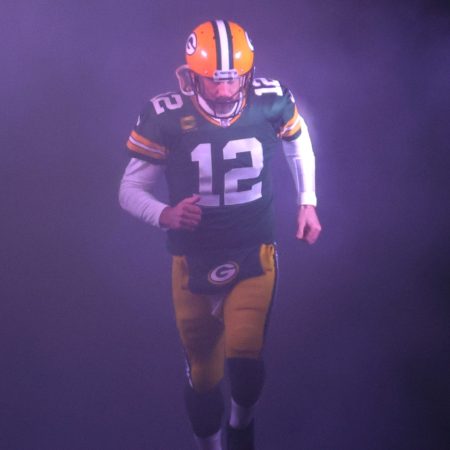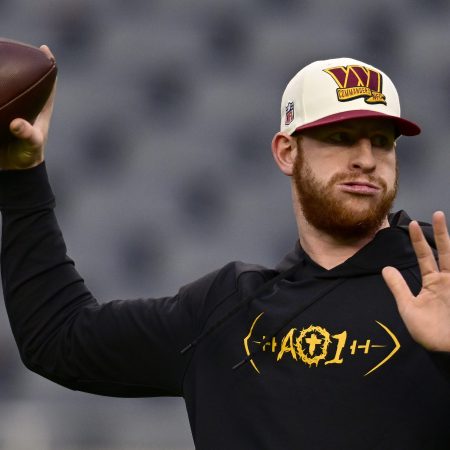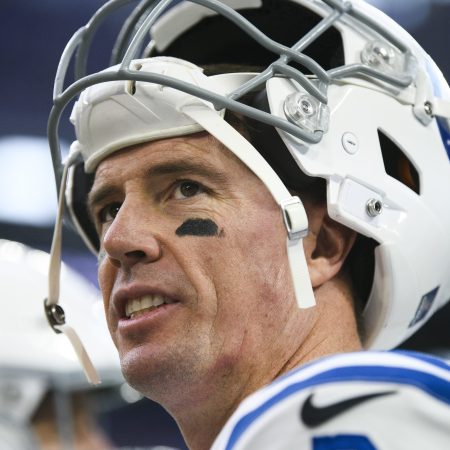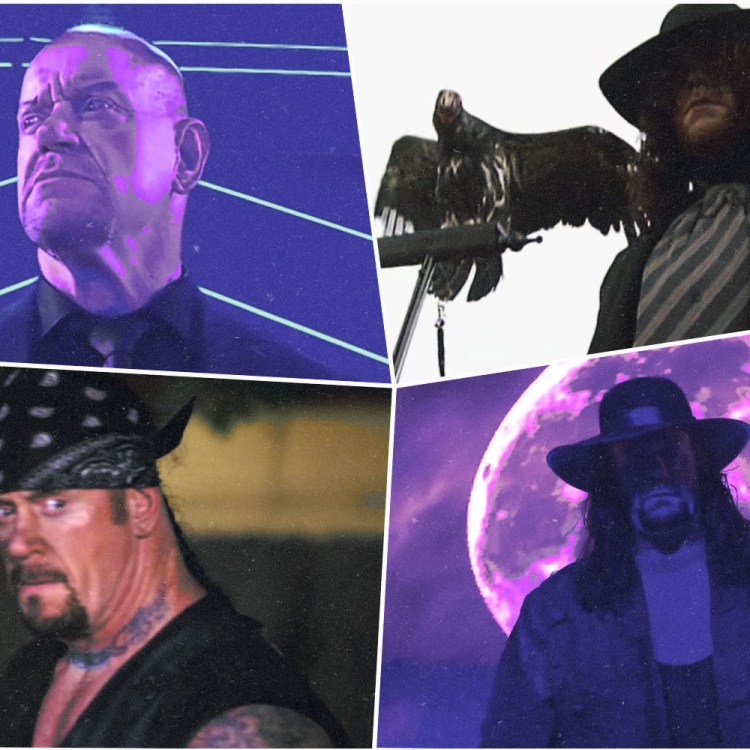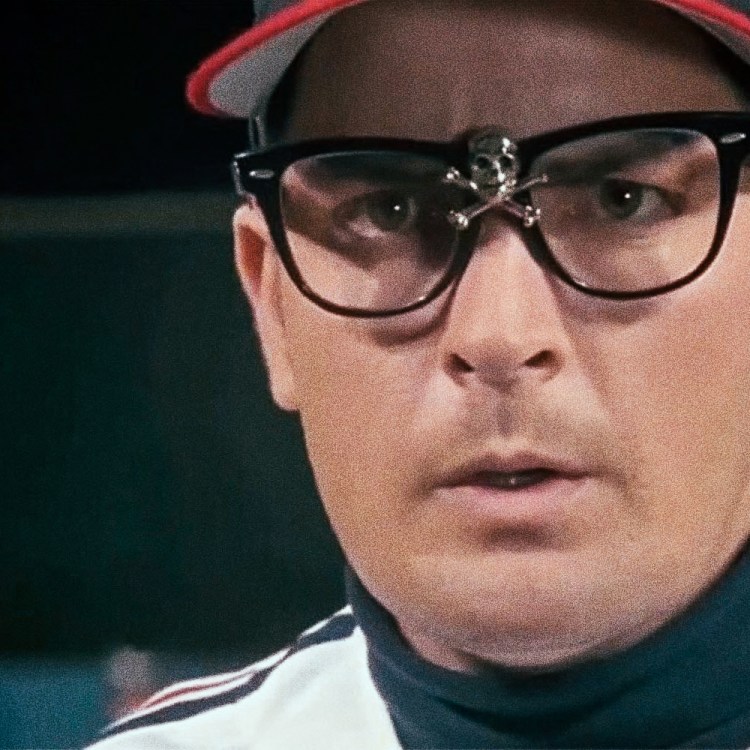Last month, it became public knowledge that Arizona quarterback Kyler Murray’s new contract with the Cardinals, which contains the second-most amount of guaranteed money in the history of the National Football League, included a provision requiring him to study game material on his own for four hours per week. Though the Cardinals later removed that requirement from his contract, the “homework clause” made waves across the league and led to some widespread discussion about the evaluation and criticism of Black quarterbacks like Murray.
Patrick Mahomes heard the chatter and weighed in on the matter in late July after the Kansas City Chiefs concluded a training camp practice and called it “weird” that Black quarterbacks are subject to certain types of criticism that their white counterparts don’t endure. “It’s always weird when you see guys like me, Lamar [Jackson], Kyler kind of get that on them when other guys don’t,” he said. “But at the same time we’re going out there to prove ourselves every day to show we can be some of the best quarterbacks in the league.”
Mahomes, a former MVP and one-time Super Bowl champion, is one of the best QBs in the NFL and no longer has to prove it. Murray may not have accomplished as much as Mahomes in the NFL, but there’s little doubt at this point he can play quarterback at a high level in the pros. The same can be said about many of Mahomes’s and Murray’s Black peers as more than one-third of the NFL’s 32 teams project to start the 2022-23 season with a person of color under center.
According to ESPN and Andscape (formerly The Undefeated) senior NFL writer Jason Reid, the author of Rise of the Black Quarterback: What It Means for America, things are far from perfect for Black men who play quarterback in the NFL, but they’ve also never been better.
“A ton of progress has been made,” Reid tells InsideHook. “It was once unfathomable you would have so many superstar Black quarterbacks or Black quarterbacks at the top of the pay scale. Black quarterbacks are in a position that they’ve never been in. But progress doesn’t mean perfection, and these issues do continue to come up.”
To delve a bit deeper into those issues and examine the current state of play of Black men who play the defining position in American sports, we caught up with Reid just after the release of his book in early August.
InsideHook: How has the success of Black quarterbacks on the field in the NFL impacted the league off the field?
Jason Reid: I believe when you see team owners and general managers drafting and supporting Black quarterbacks and those Black quarterbacks having success, it has an effect on every other part of the game. Once teams started to acknowledge Black men could play the most important position and actually thrive at it, progress was made in hiring. Now you’ll see Black and brown faces in football operations and business operations. Thirty years ago you wouldn’t see many of those faces, but you do now. That was a place where Black people were excluded. It was an exclusive domain of white men. I don’t think any of the league’s Black quarterbacks would tell you they feel an undue or extra burden to affect hiring throughout the league, but clearly their performances and their ascent within the game have helped to slowly chip away at the wrongheaded notions of the past.
IH: Can the ascent of Black quarterbacks in the NFL have an impact on American culture as a whole?
JR: I would make an argument it already has. Quarterback is a uniquely American leadership position. Let’s take it away from the football field. In corporate America, if you are the leader of a team that is undertaking a big project for a corporation, what’s said about you? You’re quarterbacking the team. When we think of a quarterback, we think of the smartest person in the room and a person who inspires people to do better. We think of leaders. The rise of Black quarterbacks in the NFL has coincided with the rise of Black people in America. If you’re a young Black kid, representation matters. Seeing someone who looks like you makes you think, “Well, shoot. He can do it, maybe I can do the same thing. Not just being a quarterback on an NFL team, but maybe being a teacher or a CPA or a doctor. Once people get opportunities and prove they can accomplish things, that opens a lot of doors.
IH: For the NFL to truly move on from its past problems, is change at the very top of the league required?
JR: It’s interesting you bring that up and. For whatever anybody wants to say about [NFL commissioner] Roger Goodell, he walks the talk in the league office. If you look at NFL football operations, there are many African-Americans in high-ranking positions. He’s stated that he wants the NFL to be an inclusive workplace. That’s got to start in the commissioner’s office. I think there are eight or nine VP-level positions in football operations that are occupied by Black men or women. The problem is at the team level. The numbers just are not good. Goodell doesn’t have the power to force owners to hire people. That’s just the way the NFL is set up.
IH: In your opinion, what would be the way for the NFL to increase diversity in top positions at the team level?
JR: I joke about this with NFL executives and coaches who are friends of mine. The answer is for the owners just to be a little bit less racist and hire qualified people. I’m not saying there aren’t any people of color in high-ranking positions at the team level. There are. But it is not to the level that the NFL states it wants to be at. A franchise quarterback is the face of the team, but an NFL head coach is the face of the team too. Based on the numbers I think we can deduce owners just aren’t comfortable hiring a lot of Black men and people of color. Mike Tomlin of the Pittsburgh Steelers, Lovie Smith of the Houston Texans and Todd Bowles of the Tampa Bay Buccaneers are the only three black head coaches in the league. [Miami Dolphins coach Mike McDaniel is biracial and Washington Commanders coach Ron Rivera is Latino.] I believe the league’s players are almost 6 African-American so clearly there’s an issue. I’ve heard for years that the league needs more Black owners, but it’s not about Black people coming in and just hiring Black people. It’s about owners being true to what the league says it wants to do. You can’t tell me if blinders were put on from a racial standpoint that more people of color wouldn’t be hired. In a perfect world, everyone has the same opportunity to compete and decisions are made based upon qualifications.
This article was featured in the InsideHook newsletter. Sign up now.


